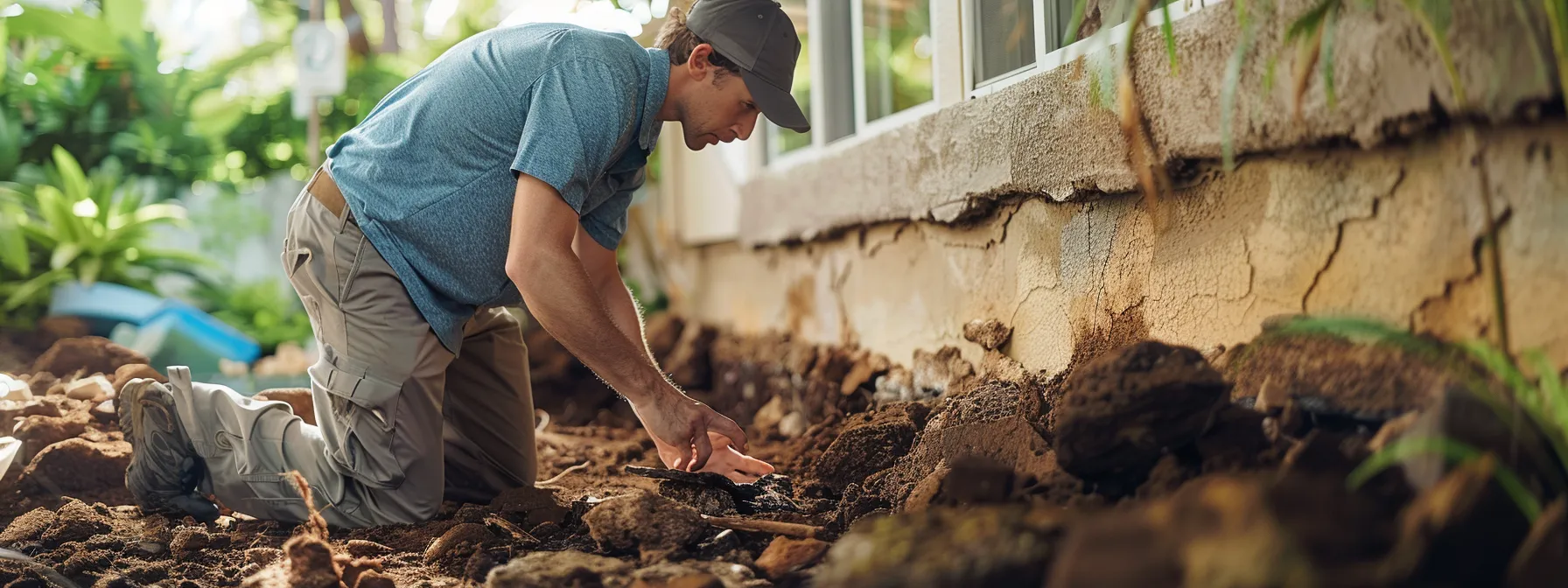
10 Dec Guide to Hilo Home Inspections – Foundations
Are you aware that a significant number of real estate transactions in Hilo, Hawaii, hinge on the outcomes of a thorough home inspection? This guide will delve into the critical aspects of home inspections and foundation care, essential knowledge for any homeowner or real estate agent in Hawaii. We’ll walk you through the home inspection process, introduce you to reputable Big Island home inspection services, and provide actionable advice on selecting the right inspector for your needs. By engaging with this content, you’ll learn how to maintain your home’s foundation effectively, potentially saving thousands in future repairs. We’ll address common concerns such as roofing integrity and plumbing issues, ensuring your Hawaiian home remains a paradise.
Key Takeaways
- Hilo’s climate demands regular home inspections to prevent moisture and termite damage
- Legal requirements in Hawaii mandate thorough inspections before property transactions
- Local experience is crucial for inspectors to address Hilo’s unique environmental challenges
- Proactive foundation care is essential to maintain property value and safety in Hilo
- Recognizing signs of foundation distress prompts timely professional repair services
Understanding the Importance of Home Inspection in Hilo, Hawaii

As a seasoned inspector in Hilo, I’ve seen firsthand how our unique climate can lead to specific issues in homes, such as water damage and the need for robust air conditioning systems. In this section, I’ll share insights on common problems I encounter during home inspections, the impact of Hilo’s humid environment on building structures, and the legalities surrounding home inspections in Hawaii. Understanding these elements is crucial for homeowners to ensure their property is safe, compliant, and well-maintained, which can also affect insurance considerations. Let’s delve into what you should watch for and why regular inspections are a non-negotiable aspect of home care in Hilo.
Common Issues Found in Hilo Homes
In my experience as a home inspector in Hilo, I’ve observed that the intense heat and humidity here can cause significant stress on a home’s attic and roofing structures. The relentless sun can lead to the degradation of roofing materials, while the humidity fosters an environment ripe for mold and mildew, particularly in poorly ventilated attics. Homeowners in Oahu and the surrounding areas must be vigilant in monitoring these spaces to prevent long-term damage that could impact the integrity of their homes.
Another aspect that demands attention is the quality of construction and the use of materials suited to our tropical climate. I’ve seen cases where inadequate construction has led to costly repairs for homeowners. It’s essential to have liability insurance in place, as it can provide a safety net against unforeseen expenses arising from structural issues. Regular inspections can identify potential problems early, saving homeowners from more significant financial burdens down the line.
The Impact of Hilo's Climate on Home Structures
During my inspections in Hilo, I’ve noted that the persistent dampness can severely affect the foundations of homes. This moisture, if not properly managed, can attract termites, which are a notorious issue in our region. A thorough termite exam should be an integral part of any real estate transaction or routine maintenance of a leasehold estate to prevent these pests from undermining the structural integrity of the property.
Furthermore, the salty sea air that is characteristic of our island can accelerate the corrosion of metal components in building structures. In my role, I emphasize the importance of regular inspection to identify early signs of corrosion, particularly in load-bearing elements, to ensure the safety and longevity of the property. This proactive approach is essential for preserving the value of real estate in Hilo’s unique climate.
Legal Requirements for Home Inspections in Hawaii
In Hawaii, the legal framework governing home inspections is designed to protect both the buyer and seller by ensuring that all parties have accurate information about the property’s condition. As an inspector, I’ve observed that thorough examinations of electrical systems, kitchen appliances, and potential mold growth are not just recommended but often required by law, especially when a property is listed for sale. This legal stipulation helps prevent disputes post-sale and ensures that any issues with the property are disclosed before the transaction is completed.
Moreover, the state’s regulations mandate that any advertising for the sale of a property must be truthful and disclose any known defects. From my professional standpoint, this underscores the importance of a comprehensive home inspection, as it can reveal hidden problems such as mold infestations or outdated electricity wiring that could affect the property’s value and safety. By adhering to these legal requirements, homeowners and buyers in Hilo can navigate the real estate market with greater confidence and security.
Foundation Care Essentials for Hilo Homeowners
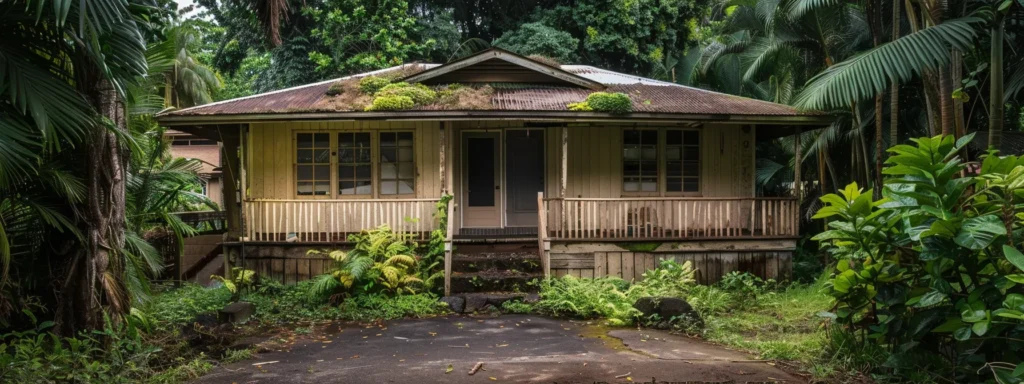
In Hilo, the lush environment we cherish also poses unique challenges for the foundations of our homes. As a professional in the field, I understand the necessity of preventative measures for maintaining robust foundations. Proper drainage systems are critical in managing the moisture that our climate introduces. Customers often overlook the silent threat of radon, but it’s a vital aspect of home safety to consider. Estate agents and those with lease agreements should be aware of the signs indicating foundation issues, such as cracks or uneven floors. Regular foundation inspections are beneficial, ensuring the longevity and safety of your property. In the following sections, I’ll guide you through these essential topics, providing practical advice and insights.
How Hilo's Environment Affects Home Foundations
In my professional experience, the lush landscape of Hilo can significantly impact the foundations of homes, particularly in areas with high moisture levels. For instance, homes with crawl spaces are susceptible to dampness, which can lead to structural weakening over time. As a homeowner or condominium manager, it’s imperative to schedule regular inspections to ensure that these spaces remain dry and well-ventilated, thus preserving the integrity of the foundation.
Another critical aspect to consider is the licensing of professionals who perform these inspections. I always advise clients to work with licensed inspectors who understand the unique challenges of maintaining a basement in Hilo’s environment. These experts can provide actionable insights, such as the installation of proper drainage systems to combat the effects of our tropical climate on your home’s foundation:
- Assess the condition of the crawl space or basement for signs of moisture or damage.
- Implement effective drainage solutions to manage excess water.
- Schedule routine inspections with a licensed professional to maintain foundation health.
Preventative Measures for Foundation Maintenance
In my professional practice, I’ve learned that knowledge is the cornerstone of effective foundation maintenance. Homeowners should be proactive in detecting leaks that can compromise the foundation’s integrity. A regular review of your home’s exterior, looking for cracks or signs of moisture, can prevent costly repairs. It’s wise to consider a contract with a reputable foundation specialist who can offer routine check-ups, ensuring that any issues are addressed promptly and your home remains structurally sound.
For those using software to manage property maintenance or renting out their homes, incorporating foundation care into your regular inspection routine is essential. This digital approach can help track the health of your foundation over time, providing a clear record of maintenance and any interventions required. As a homeowner, staying ahead of potential foundation problems not only protects your investment but also provides peace of mind that your property is safe and durable in Hilo’s challenging environment.
Signs of Foundation Problems to Watch For
During my inspections, I’ve learned to recognize the subtle yet telling signs that a foundation may be compromised. For instance, if doors begin to jam or fail to latch, or if windows stick or won’t close properly, it could indicate shifts in the foundation. These issues are particularly relevant for commercial property inspections, where the safety and functionality of a building are paramount. As a nationally certified inspector, I ensure that my clients are informed about these potential red flags, which could have implications for their tax considerations and insurance policies.
Another critical indicator of foundation distress is the presence of water pools or unusual dampness around the property, which can affect water heating systems and lead to more severe structural damage. It’s essential for property owners to be insured against such risks, especially in Hilo where our climate exacerbates these issues. Observing these signs early can save significant repair costs and protect the value of the property, whether it’s a residential home or a commercial estate:
- Monitor doors and windows for proper function and alignment.
- Inspect the perimeter of the property for water accumulation or persistent dampness.
- Stay vigilant for cracks in walls, floors, or the foundation itself.
Benefits of Regular Foundation Inspections
As a real estate agent in Hilo, I’ve witnessed the undeniable benefits that regular foundation inspections provide to property owners. These inspections serve as a preventive measure against flood damage, which is a common concern in our tropical climate. By obtaining a certification for your property’s foundation health, you not only ensure the safety and stability of the structure but also enhance its marketability, offering a clear advantage in the competitive real estate landscape.
Embracing the aloha spirit in our approach to home care, I recommend incorporating advanced techniques like thermography in regular foundation inspections. This technology allows for the early detection of potential issues that may not be visible to the naked eye, such as hidden moisture or heat loss. Such proactive measures can save homeowners from costly repairs and maintain the integrity of their investment over time:
- Utilize thermography to identify unseen foundation issues.
- Secure certification to validate the condition of your property’s foundation.
- Implement regular inspections to safeguard against flood damage and structural instability.
The Home Inspection Process in Hilo
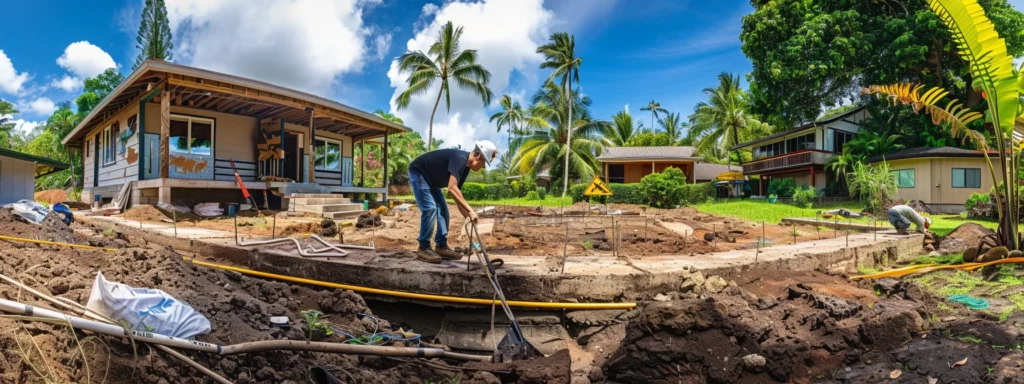
Embarking on a home inspection in Hilo requires a keen understanding of our unique environment. Selecting a qualified home inspector is the first step, ensuring they have the necessary insurance and expertise to evaluate ventilation and other critical aspects of affordable housing. Preparing your home for inspection is next, where I’ll guide you through the steps to make the process smooth. During the inspection, expect a thorough review from a professional home inspector, who will assess every nook and cranny. Finally, interpreting your home inspection report is crucial; it’s where you’ll find detailed insights into the condition of your property. Each of these stages is vital for homeowners in the United States, particularly in Hilo, where the climate adds complexity to home maintenance.
Selecting a Qualified Home Inspector in Hilo
Choosing the right home inspector in Hilo is a decision that can significantly influence your peace of mind, especially when dealing with the intricacies of a mortgage. I prioritize inspectors who not only have a strong grasp of technology but also excel in customer service. This combination ensures that they can effectively communicate their findings and provide a comprehensive understanding of the property’s condition, which is essential for making informed decisions.
My experience has taught me that the best inspectors lead with thoroughness and an eye for detail. They are adept at using the latest technology to uncover issues that might not be visible to the untrained eye. Here’s a quick reference to help you identify the key attributes to look for in a home inspector:
| Attribute | Description | Relevance to Hilo |
|---|---|---|
| Customer Service | Ability to communicate clearly and promptly | Ensures homeowners are well-informed |
| Technological Proficiency | Use of modern tools for accurate inspections | Identifies hidden issues unique to Hawaii’s climate |
| Attention to Detail | Comprehensive evaluation of all home aspects | Critical for detecting environment-related damages |
Preparing Your Home for Inspection
Preparing your home for inspection is a step that warrants your full attention. It’s a process where even the smallest detail can have a significant impact on the outcome. Ensure that areas like the porch and bathroom are accessible and clear of personal items, as these spaces will be scrutinized for structural integrity and potential water damage. An inspector might use infrared technology to detect hidden issues, so keeping these areas unobstructed is key to a thorough evaluation.
When I prepare for an inspection, I always advise homeowners to consider the fee an investment in their property’s future. To facilitate a smooth inspection process, here’s a checklist to follow:
- Clear any clutter from critical areas such as the porch, attic, and bathroom.
- Replace any burnt-out bulbs to allow for a clear view of electrical fixtures.
- Ensure all utilities are connected and operational for a comprehensive assessment.
This preparation not only aids the inspector but also provides you with peace of mind, knowing that your home has been presented in the best possible light.
What to Expect During a Home Inspection
During a home inspection in Hilo, you can expect a meticulous examination of your property, with a focus on identifying any issues related to zoning compliance, building integrity, and potential mildew growth due to our humid climate. As a member of the American Society of Home Inspectors, I bring a wealth of knowledge to each inspection, ensuring that your investment is thoroughly evaluated for any hidden problems that could affect its value and safety.
My approach is to scrutinize every aspect of your home, from the foundation to the roof, to provide a comprehensive assessment that addresses your concerns. I understand the importance of detecting even the slightest signs of mildew or structural weakness, which is why I use the latest techniques and tools to deliver a report that gives you a clear understanding of your property’s condition. This attention to detail is crucial for maintaining the longevity of your investment in Hilo’s unique environment.
Interpreting Your Home Inspection Report
Upon receiving your home inspection report, it’s essential to approach it with confidence, understanding that it’s a tool to guide you in making informed decisions. As a professional in the field, I’ve seen how a detailed report can serve as a blueprint for discussions with architects or general contractors. It outlines the condition of your property, highlighting areas that may require immediate attention or future monitoring, and helps you anticipate potential costs.
The report will typically categorize findings by severity, allowing you to prioritize repairs and negotiate the price accordingly, especially during real estate transactions. For commercial inspections, this document is invaluable, providing a clear picture of the property’s state and ensuring compliance with local building codes. Here’s a table to help you decode the key sections of a home inspection report:
| Section | Details | Action Items |
|---|---|---|
| Structural Integrity | Assessment of foundations, beams, and load-bearing walls | Consult a general contractor for repairs or reinforcements |
| Electrical Systems | Evaluation of wiring, panels, and safety switches | Address any hazards or outdated systems immediately |
| Plumbing and Ventilation | Inspection of pipes, drains, and HVAC systems | Schedule maintenance or upgrades with a licensed technician |
Remember, the goal of the home inspection report is not to dissuade you from a purchase but to empower you with knowledge. It’s a comprehensive overview that, when interpreted correctly, can ensure the longevity and safety of your property in Hilo’s unique climate. Whether you’re a homeowner or involved in commercial real estate, this report is a cornerstone of your due diligence process.
Big Island Home Inspection Services Overview
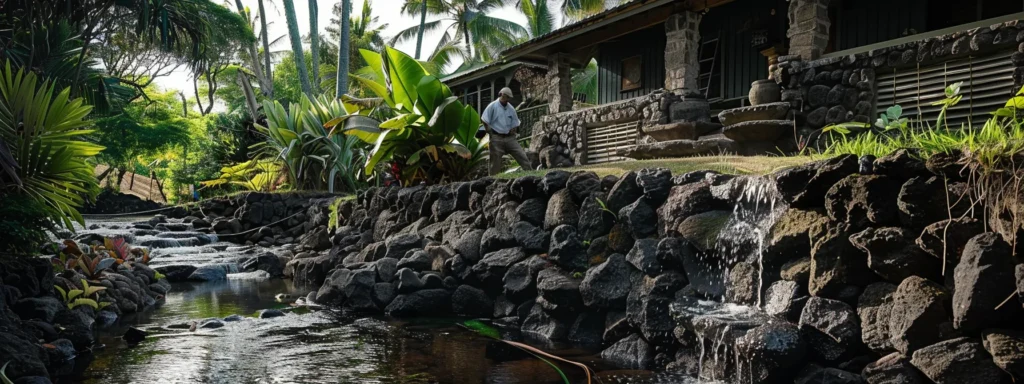
In my role as a home inspector in Hilo, I offer a suite of key services tailored to address the unique challenges of our island’s homes and commercial properties. These services include thorough water damage assessments, pest inspections, and asbestos testing—each critical given our climate and construction materials. I’ll also discuss the nuances between residential and commercial inspections, highlighting the importance of ethics in our practice. Additionally, I provide a range of specialized inspection services that consider the specific needs of each lot, ensuring a comprehensive understanding of your property’s condition.
Key Services Offered by Hilo Home Inspectors
In my role as a home inspector in Hilo, I provide a comprehensive range of services designed to ensure that homes and vacation rentals meet the stringent requirements of building codes and maintain high standards of accessibility. From scrutinizing the square footage for accurate property assessment to evaluating structural integrity, my services are tailored to address the unique needs of Big Island properties. This attention to detail is particularly crucial for vacation rental owners, who must ensure their properties are safe and compliant for guests.
Understanding the local building code is essential for any property owner, especially in areas like Colorado, where regulations may differ significantly from those in Hawaii. I bring my expertise to the table by offering detailed inspections that cover every aspect of compliance, ensuring that your property adheres to the highest standards. This proactive approach not only safeguards your investment but also provides peace of mind that your property is secure and welcoming for all occupants:
| Service | Description | Benefit |
|---|---|---|
| Building Code Compliance | Ensuring all aspects of the property meet local regulations | Prevents legal issues and enhances safety |
| Accessibility Evaluation | Assessment of property features for accessibility standards | Ensures comfort and access for all guests or residents |
| Vacation Rental Inspections | Specialized inspections for short-term rental properties | Boosts guest confidence and satisfaction |
Differences Between Residential and Commercial Inspections
In my professional experience, the primary distinction between residential and commercial inspections lies in the scale and complexity of the systems involved. Commercial properties often have more extensive electrical wiring networks and HVAC systems, which require a specialized understanding to assess accurately. Additionally, commercial inspections typically involve a closer look at the building’s adherence to specific business policies and regulations, which can be more stringent than those for residential properties.
Another key difference is the level of detail required in reporting. For commercial inspections, I’ve found that clients frequently request documentation that includes an email address for follow-up communications, reflecting the more formal nature of business transactions. Moreover, commercial properties may face unique challenges related to moisture control due to larger spaces and varying usage patterns, necessitating a more robust inspection approach:
- Assessment of complex electrical wiring and HVAC systems.
- Evaluation of compliance with business-specific policies and regulations.
- Detailed reporting with formal communication channels, such as an email address.
- Specialized moisture control inspections for larger commercial spaces.
Additional Inspection Services Available
In my practice as a home inspector in Hilo, I’ve expanded my services to include specialized inspections that are critical for a comprehensive real estate transaction. For instance, lead paint inspections are a must, particularly for older homes that may have been built before regulations restricted its use. This is a crucial consideration for buyers from areas like New Jersey, where older housing stock is common and the presence of lead paint can be a significant health hazard.
Moreover, understanding and adhering to the covenant of a property is essential, as it can dictate certain maintenance and structural requirements. My services ensure that all aspects of a property are thoroughly examined, not just for current condition but also for compliance with local regulations. This holistic approach to inspection provides peace of mind for buyers and sellers alike, knowing that their real estate transaction is secure and informed by a detailed understanding of the property’s status:
- Lead paint inspection to ensure safety and regulatory compliance.
- Evaluation of property covenants for maintenance and structural obligations.
- Thorough checks for adherence to local building and safety regulations.
Choosing the Right Home Inspector in Hawaii
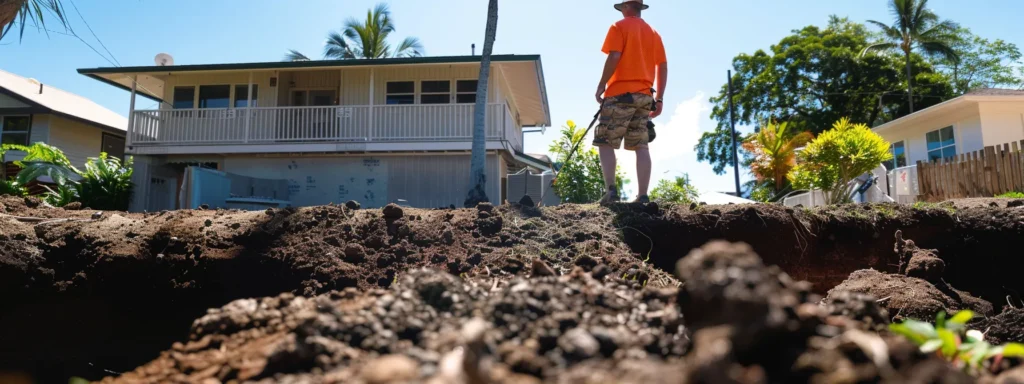
Selecting a home inspector with the right credentials is a pivotal step for any landlord or homeowner in Hilo, Hawaii. I’ll guide you through identifying the essential certifications to look for, crafting questions to ask potential inspectors, and understanding why local experience on the Big Island is invaluable. Whether you’re in Michigan, Oregon, or right here in Hawaii, the cost and quality of a home inspection can significantly impact your real estate decisions. Let’s explore how to choose a professional who meets your needs and ensures a thorough evaluation of your property.
Credentials and Certifications to Look For
When I assist clients in Hilo in selecting a home inspector, I emphasize the importance of verifying credentials and certifications. A reputable inspector should have a valid license, which indicates they have met the necessary educational and professional standards. Additionally, it’s wise to check if they are a member of recognized industry organizations, such as the American Society of Home Inspectors (ASHI), which upholds high ethical standards and requires ongoing education. This due diligence ensures that the company you choose is equipped to handle the intricacies of home inspections in Hawaii, including the unique challenges presented by the Makiki area’s climate and terrain.
Another critical step is to research any complaints filed against the inspector or their company. This can provide insight into their reliability and the quality of their work. For those securing a loan to purchase a property in Georgia, for instance, ensuring that the inspector has a clean record is paramount, as it can influence the loan approval process. Here’s a table that summarizes the key credentials and certifications to look for when choosing a home inspector:
| Credential/Certification | Importance | Impact |
|---|---|---|
| Valid License | Confirms professional training and adherence to state regulations | Ensures inspector competence and legal operation |
| Industry Organization Membership | Reflects commitment to ethical standards and ongoing education | Enhances inspector credibility and up-to-date knowledge |
| Complaint History | Reveals past issues and client satisfaction | Affects trustworthiness and potential impact on loan processes |
Questions to Ask Potential Inspectors
In my professional experience, it’s essential to inquire about the specifics of an inspector’s service offerings. For instance, ask if their inspection includes a detailed examination of paint for potential lead content, which is particularly relevant for older homes. It’s also prudent to discuss payment terms upfront to avoid any misunderstandings; some inspectors in Virginia, for example, may require payment at the time of service, while others offer flexible billing options.
Another critical question to pose relates to the post-inspection support provided. Clarify whether the inspector offers a warranty on their findings, which can be a significant advantage if issues arise after the inspection. Additionally, ensure they are thorough in assessing areas prone to damage, such as the ceiling, to prevent future costly repairs. These inquiries not only demonstrate due diligence but also help establish a clear understanding of the services you will receive.
The Importance of Local Experience on the Big Island
When selecting a home inspector in Hilo, the value of local experience cannot be overstated. Inspectors familiar with the Big Island’s unique environmental conditions, from the volcanic soil to the tropical climate, bring an indispensable perspective. They understand how these factors can affect a home’s foundation and overall structure, much like how Louisiana’s humidity or Rhode Island’s coastal storms shape their respective real estate landscapes.
Moreover, a local inspector’s background check on a property often includes knowledge of area-specific issues, such as those that might affect homes in Kentucky’s rural settings. They come equipped with specialized tools, like high-resolution cameras, to detect subtleties that others might miss. This local expertise ensures a more accurate and thorough inspection, safeguarding your investment with insights that only come from years of working in the unique conditions of Hawaii.
| Local Insight | Tool Used | Benefit |
|---|---|---|
| Volcanic soil impact on foundations | High-resolution camera | Detects structural vulnerabilities |
| Humidity and coastal storm preparedness | Moisture meters | Prevents long-term water damage |
| Area-specific pest and termite checks | Infrared thermography | Identifies hidden infestations |
Post-Inspection: Maintaining Your Home's Foundation
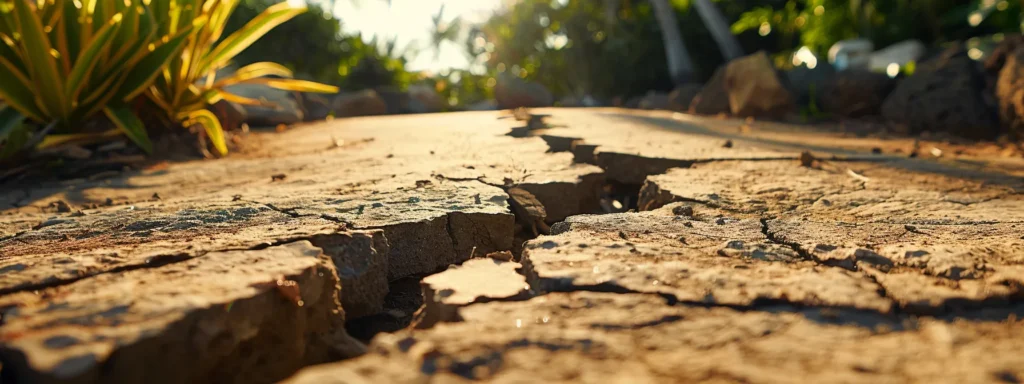
Following a thorough home inspection, addressing any identified issues with your foundation is imperative. I’ll provide you with actionable tips for ongoing care to mitigate hazards and maintain structural integrity. We’ll also explore when it’s time to seek professional foundation repair services, ensuring your home in Hilo remains safe and sound. Whether you’re in South Carolina, Pennsylvania, or here in Hawaii, the information and adherence to law in foundation care are vital for every homeowner.
Addressing Identified Issues Promptly
After a meticulous home inspection in Hilo, I’ve learned that addressing foundation issues promptly can prevent the kind of extensive damage that homeowners in Maryland or Mississippi might face due to their own regional challenges. It’s critical to the health of your home to act swiftly on any recommendations, as delaying repairs can lead to more severe problems, much like ignoring health warnings can have serious consequences for one’s well-being.
In my professional experience, I’ve seen how homeowners in Vermont and Nevada benefit from immediate action following an inspection. By quickly rectifying any identified foundation concerns, they not only ensure the safety and stability of their homes but also potentially avoid the steep costs associated with more significant repairs down the line. This proactive approach is essential for maintaining the integrity of your property in Hilo’s unique environment.
Tips for Ongoing Foundation Care
In my professional practice, I advise duplex owners and community members in Hilo to regularly monitor the moisture levels around their foundation. Especially in areas with climates similar to Tennessee or Delaware, consistent checks can prevent the kind of water intrusion that leads to costly damage. By ensuring that your floor and surrounding ground have adequate drainage, you can protect the structural integrity of your home and avoid the common pitfalls of foundation neglect.
I’ve seen the benefits of proactive foundation care in maintaining the value and safety of properties. It’s essential to inspect the foundation for cracks or shifts regularly, as these can be early indicators of underlying issues. In my experience, homeowners who stay vigilant about the condition of their foundation often enjoy a more secure and durable living space, which is particularly important in the diverse and dynamic climate of Hilo, Hawaii.
When to Consider Professional Foundation Repair Services
Recognizing when to engage professional foundation repair services is a critical tool in the trade of maintaining a home’s structural health. In my experience, signs such as significant cracking, uneven floors, or persistent issues with indoor air quality often indicate underlying foundation problems that require expert intervention. Especially in Hilo, where the coastal environment of Hilo Bay can exacerbate foundation issues, it’s essential to act promptly to preserve your home’s integrity.
As a homeowner in Hilo, I’ve learned that when doors and windows no longer align correctly or when visible gaps appear in the exterior walls, it’s time to consult with professionals. These symptoms can suggest that the foundation may be shifting, a situation that can lead to more severe complications if not addressed. Here are the steps I follow when considering professional foundation repair services:
- Evaluate the severity of visible cracks and structural changes.
- Monitor indoor air quality for signs of increased humidity or mustiness.
- Seek assessments from licensed repair services with experience in Hilo’s unique conditions.
For those living in regions with climates similar to Arkansas, where soil conditions can significantly impact foundations, understanding when to call in a specialist is just as crucial. Timely professional assessment and repair can prevent minor issues from becoming major disruptions, ensuring the safety and longevity of your home in Hilo.
Frequently Asked Questions
Why is a home inspection crucial in Hilo, Hawaii?
In Hilo, Hawaii, a home inspection is essential to identify potential issues related to the tropical climate, such as mold, structural damage from humidity, and termite infestations, ensuring a safe and sound investment.
What are the key elements of foundation care for Hilo homeowners?
For Hilo homeowners, key elements of foundation care include regular inspections, moisture control, proper drainage, and promptly addressing cracks or shifts to maintain structural integrity.
What steps are involved in the Hilo home inspection process?
The Hilo home inspection process typically includes a thorough examination of the property’s structure, systems, and components, from the foundation to the roof, conducted by a certified inspector to ensure the home’s safety and integrity.
How do I find reputable home inspection services on the Big Island?
To locate trusted home inspection services on the Big Island, start by seeking recommendations from local real estate agents, reading online reviews, and verifying inspectors’ credentials with the American Society of Home Inspectors (ASHI).
What should I do to maintain my home's foundation after an inspection?
After a foundation inspection, promptly address any recommended repairs, ensure proper drainage around your home, and monitor for new cracks or shifts to maintain structural integrity.
Conclusion
In Hilo, Hawaii, the unique climate demands vigilant home inspection and foundation care to safeguard property integrity and value. Regular, thorough inspections by licensed professionals can preempt costly repairs, ensuring homes withstand the challenges of humidity, termites, and corrosion. Homeowners must address any identified issues promptly and maintain ongoing foundation care to mitigate potential hazards. Ultimately, understanding and acting on the insights provided by comprehensive home inspections is crucial for the longevity and safety of Hilo’s residential and commercial properties.


No Comments